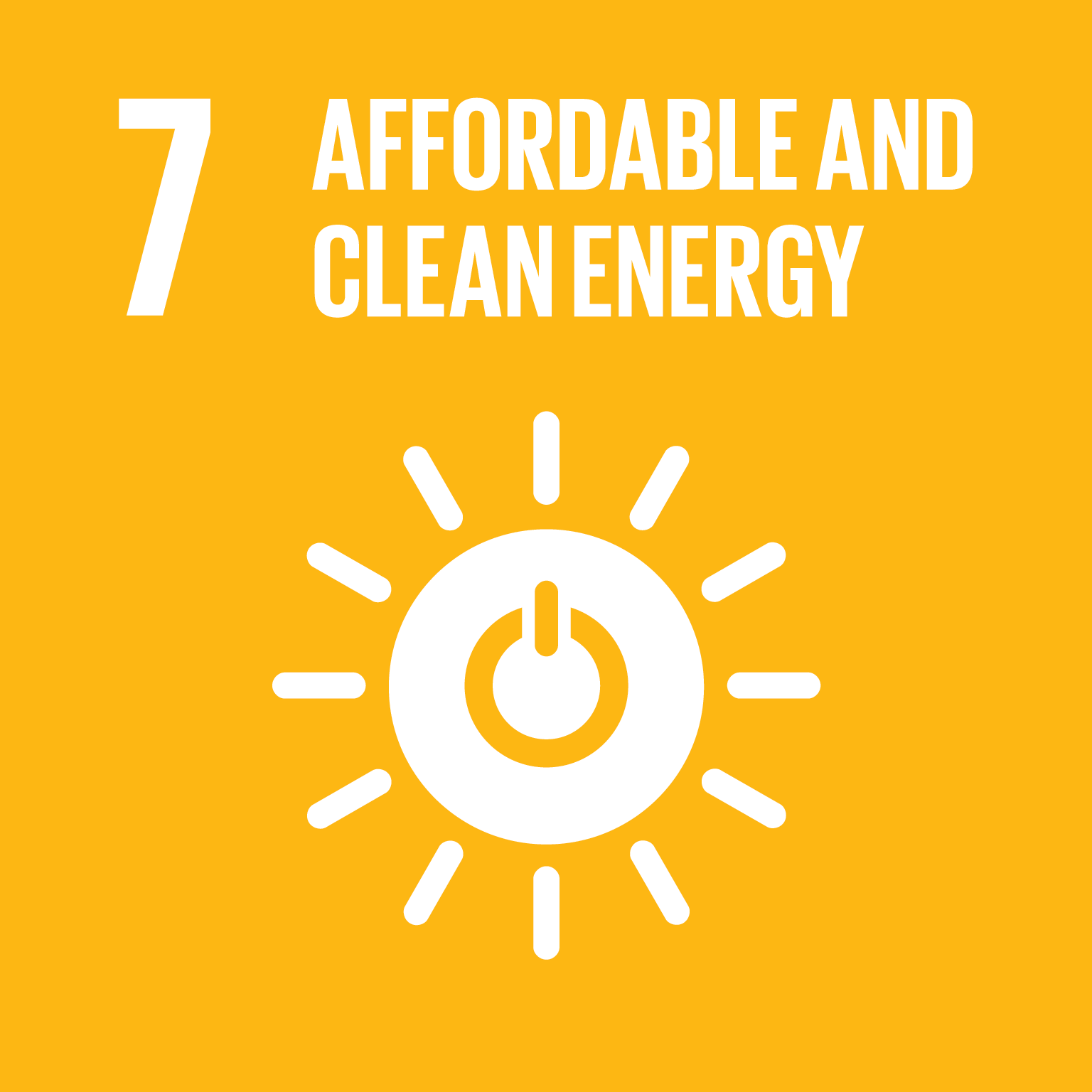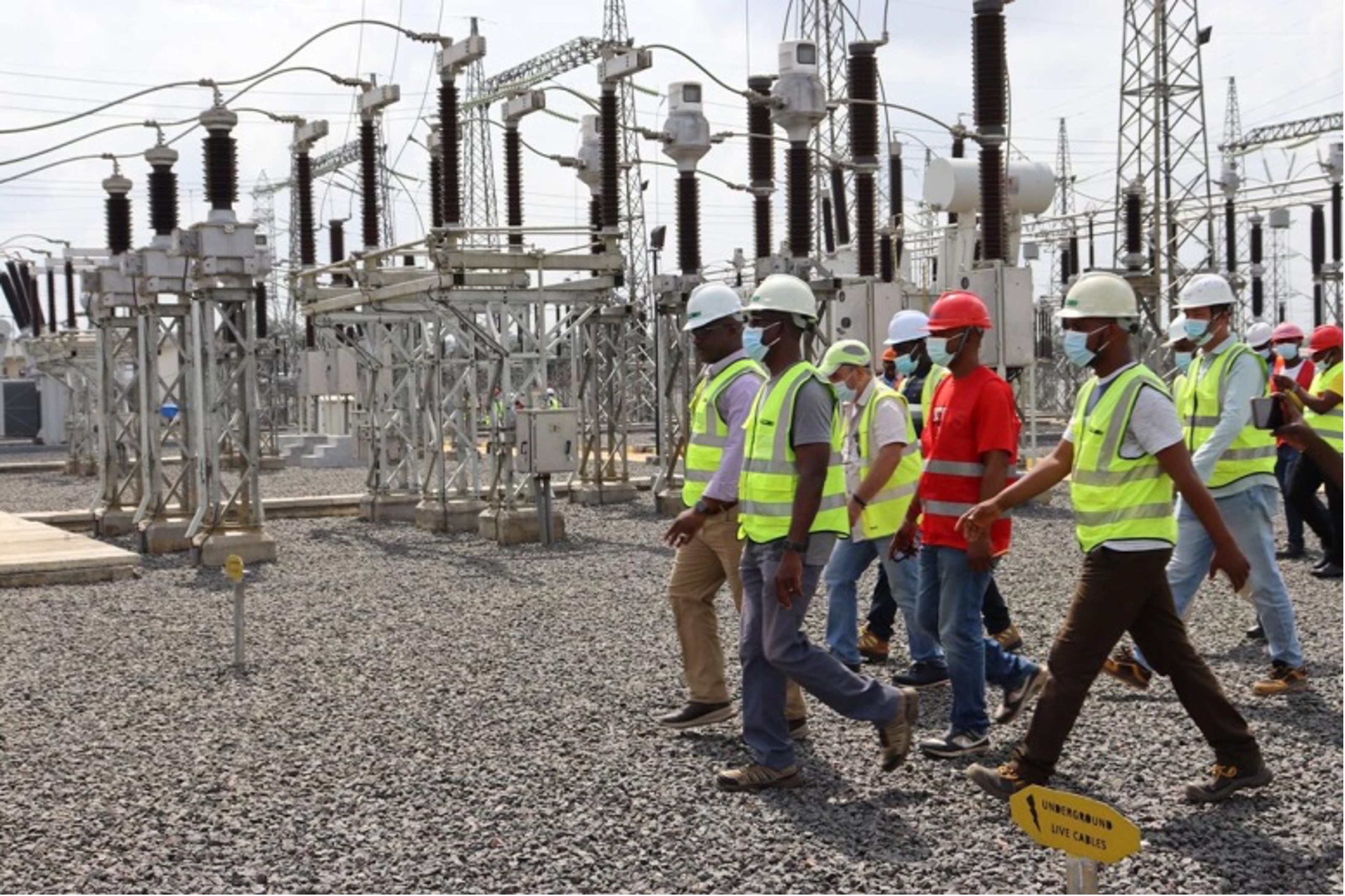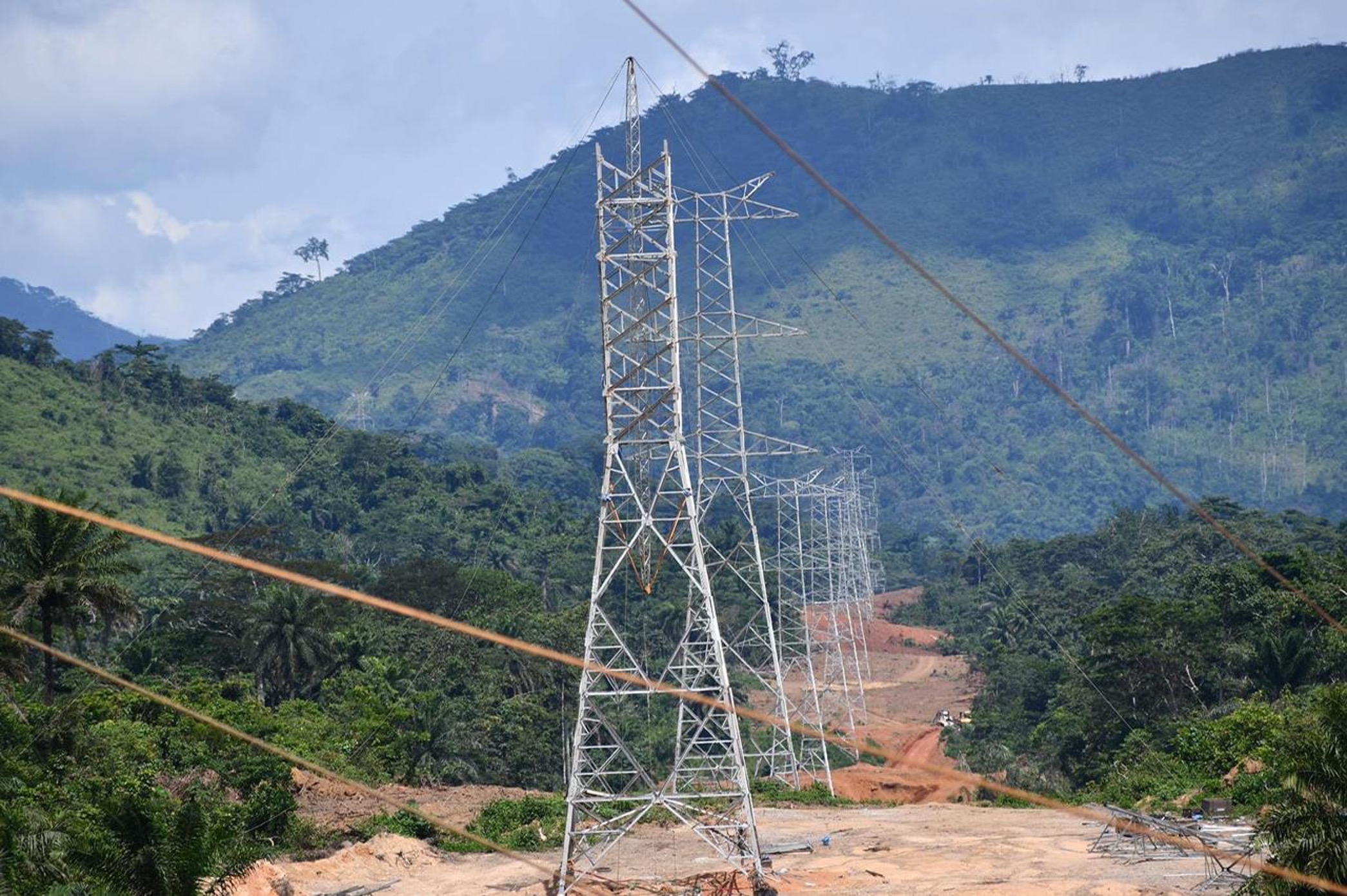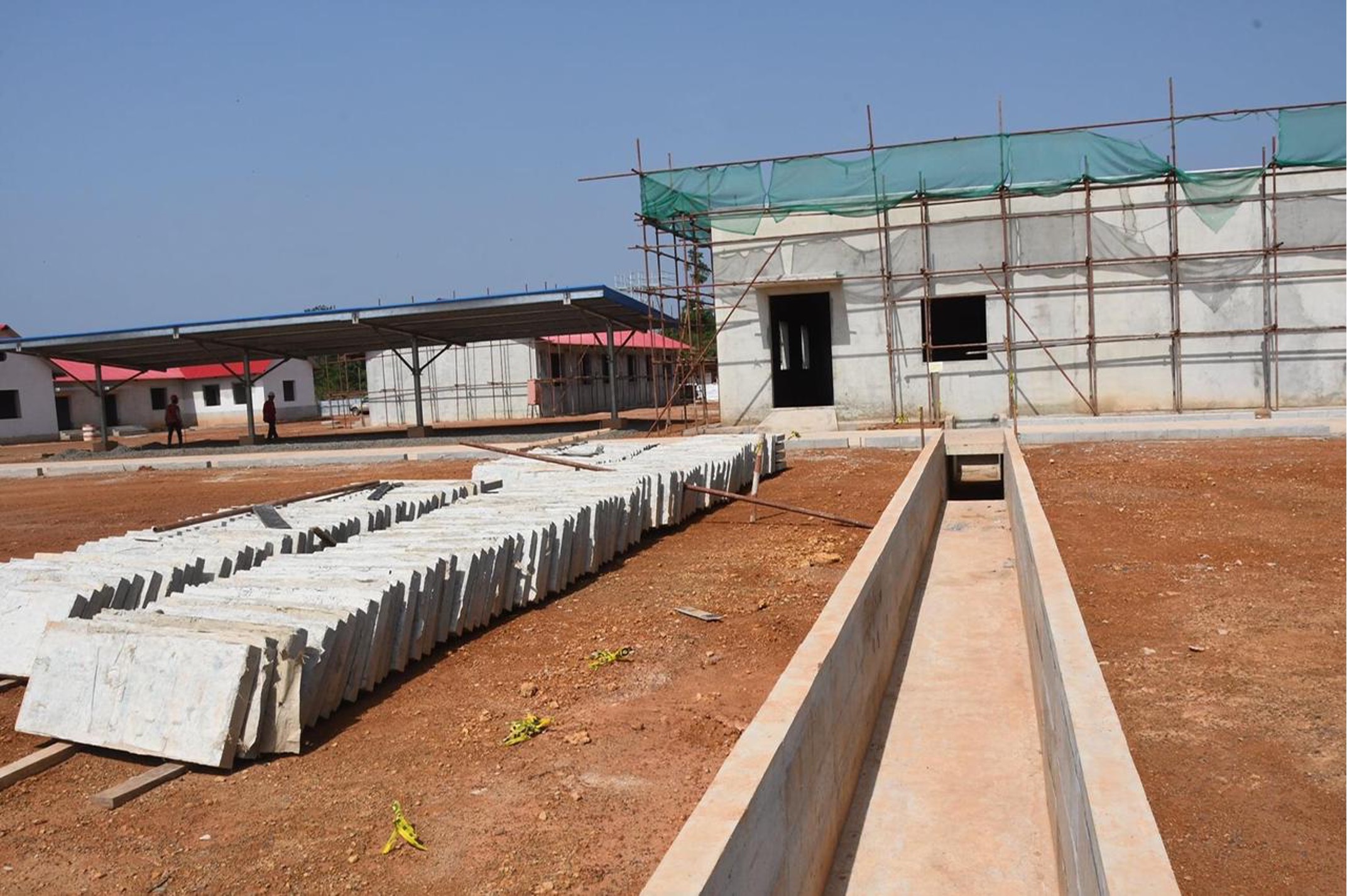 Côte d’Ivoire-Liberia-Sierra Leone-Guinea (CLSG) Interconnection Project
Overcoming electricity challenges by interconnecting the countries of the Mano River Region into the same electricity market
Côte d’Ivoire-Liberia-Sierra Leone-Guinea (CLSG) Interconnection Project
Overcoming electricity challenges by interconnecting the countries of the Mano River Region into the same electricity market

Challenges
The rate of access to electricity in the Mano River Union countries is among the lowest in the word (about 28 per cent overall with 2 per cent in Liberia and Sierra Leone and 10 per cent in Guinea). Although Côte d’Ivoire’s electrification is more favourable, it is still low at 34 per cent. Liberia’s and Sierra Leone’s electricity infrastructures have been severely affected by conflict. Existing infrastructure in the region is often obsolete and the quality of service therefore very poor. Inadequate electricity supply has been one of the main challenges to economic development and poverty reduction in the region, especially in Liberia.
Towards a Solution
The Côte d’Ivoire-Liberia-Sierra Leone-Guinea (CLSG) Interconnection project is intended to integrate the four post-conflict nations into the same regional electricity market. Interconnecting these countries with Côte d’Ivoire would allow mutually and beneficial exchanges of power and to reliable electricity supply necessary to facilitate economic growth alleviate poverty and consolidate peace.
The CLSG Interconnection Project was established to provide additional electricity to meet the growing demand and to create an incentive for the development of hydroelectric power, particularly in Liberia and Sierra Leone. It seeks to improve electricity access and development of industries as well as improve the quality of life of both rural and urban communities. The project is aligned with Sustainable Development Goal (SDG) 7 (Affordable and Clean Energy), as well as SDG 9 (Industry, Innovation, and Infrastructure). In the Istanbul Programme of Action (IPoA), the project addresses Priority Areas 1 (Productive capacity infrastructure, energy, science, technology and innovation, private sector development) and 2 (Agriculture, food security and rural development), which are critical for poverty alleviation.
This is a South-South cooperation project with stakeholders’ participation being the core approach used. More than 30 consultation meetings were held in Abidjan, Monrovia, Freetown, Conakry and areas crossed by the power lines. Stakeholders participating included ministers, representatives of local communities, civil society organizations, donors and development partners involved in the energy sector. During these meetings and consultations, information and data were made available to analyze the situation in the sector, establish the project institutional framework, prepare draft legal documents, facilitate donor coordination and to strengthen project ownership between the countries involved. The meetings also helped to define project components and share solutions to any challenges that may arise. During the implementation stage of the project, collaboration with stakeholders continued and included the implementation of the Environmental and Social Management Plan, the Resettlement Action Plan, and the infrastructure component of the project.
The project is one of the priority projects of the West African Power Pool (WAPP) Master Plan. It will assist in establishing a dynamic electric power market in the West African sub-region and secure power supply for countries, which do not have a comparative advantage in producing power. Liberia has one of the highest electricity tariffs in the world. Currently, electricity is sold at $0.35 per kWh2, and during the dry season, there are always electricity shortages, thus, increasing the cost of running businesses in Liberia. With the coming of the CLSG, Liberia Electricity Corporation has developed a business plan that will see the cost of electricity reduce to $0.25 per kWh.
This South-South cooperation initiative seeks to address the shared interests of Mano River Union Member States when it comes to bringing energy to the doorsteps of their citizenry. Overall, it has been 93 per cent completed3.Man to Monrovia line section is fully energized, the synchronization with Mount Coffee Hydro Power Plant is ongoing. Line sections from Monrovia to Mano (Liberia), Mano to Kenema, Bikongor and Bumbuna, and up to Yiben in Sierra Leone are fully completed at 100 per cent and awaiting sequential commissioning before being energized by Liberia. Additionally, line section from Yiben to Kamakwie and Linsan in Guinea is about 74 per cent completed, while the section from Yekepa to Nzerekoreh is around 95 per cent. 132KV connection between the CLSG sub-station in Monrovia and the Liberia Electricity Corporation (LEC) Mount Coffee Hydro Power Plant is completed at 100 per cent. The sub-station at Man in Côte d’Ivoire is completed and energized. Construction of sub-stations at Mano (Liberia), Kenema, Bikongor and Bumbuna sub-stations in Sierra Leone have a completion rate of 99 per cent.
This is a form of good practice and solidarity, enabling Liberia and Sierra Leone to receive energy from a neighbouring nation. Today, the CLSG is bringing energy to Liberia passing various villages and hamlets that did not expect to have energy soon. Without the project, Liberia would have not been able to single-handedly manage and implement such an endeavour in a short timeframe, given the enormous development challenges confronting the country.
The project is very innovative because it serves to provide cheap energy to remote regions of Liberia, without the Government having to invest millions of dollars into developing mini hydro plants or related sources of energy generation. The financial resources saved can be redirected towards other sectors, such as education, health and national security.
Energy infrastructure is generally long lasting and has the capacity to serve the current generation without compromising the best interest of generations yet to come. The CLSG energy infrastructure is contributing to sustainable development (businesses, education, health, security etc.) and has the ability to impact future prospects. This project has improved regional integration between Liberia, Guinea, Côte d'Ivoire and Sierra Leone. Today, the citizens of the nations concerned are enjoying trade and related benefit from the CLSG, ensuring medium to long-term socio-economic sustainability.
The project built on an existing regional organization among the four countries called the Mano River Union (MRU), which ensured its sustainability. A key lesson learned is to implement development initiatives on existing regional platforms by leveraging the comparative advantages of each participating Member State.
Contact Information
Countries involved
Supported by
Implementing Entities
Project Status
Project Period
URL of the practice
Primary SDG
Primary SDG Targets
Secondary SDGs
Secondary SDG Targets
Similar Solutions
| NAME OF SOLUTION | Countries | SDG | Project Status | |
|---|---|---|---|---|
Accelerating the Transformational Shift to a Low-Carbon Economy in Mauritius Towards supplying 35 percent of the country’s energy needs with renewables by 2025 |
Côte D'Ivoire, Guinea, Liberia, Sierra Leone | 05 - Gender Equality 09 - Industry, Innovation and Infrastructure 13 - Climate Action | Ongoing | View Details |
Accelerator Labs Network Following collective intelligence methods to address emerging sustainability challenges and the growing demand for local solutions |
Côte D'Ivoire, Guinea, Liberia, Sierra Leone | 08 - Decent Work and Economic Growth 13 - Climate Action | Ongoing | View Details |
Accessible Dictionary Inclusive Dictionary for all |
Côte D'Ivoire, Guinea, Liberia, Sierra Leone | 09 - Industry, Innovation and Infrastructure | Completed | View Details |
Addressing Racial and Ethnicity-based Discrimination and Strengthening the Protection of Rural Afro-descendants UNFPA supports data disaggregation as a tool to fight racism and ethnic discrimination |
Côte D'Ivoire, Guinea, Liberia, Sierra Leone | 01 - No Poverty 02 - Zero Hunger 03 - Good Health and Well-being 05 - Gender Equality 06 - Clean Water and Sanitation 11 - Sustainable Cities and Communities 16 - Peace and Justice Strong Institutions | Ongoing | View Details |
Addressing the Transboundary Dimensions of the 2030 Agenda through Regional Economic Cooperation and Integration in Asia and the Pacific Promoting co-deployment of ICT and transport infrastructure corridors in Central Asia region |
Côte D'Ivoire, Guinea, Liberia, Sierra Leone | 09 - Industry, Innovation and Infrastructure 13 - Climate Action 17 - Partnerships for the Goals | Completed | View Details |


